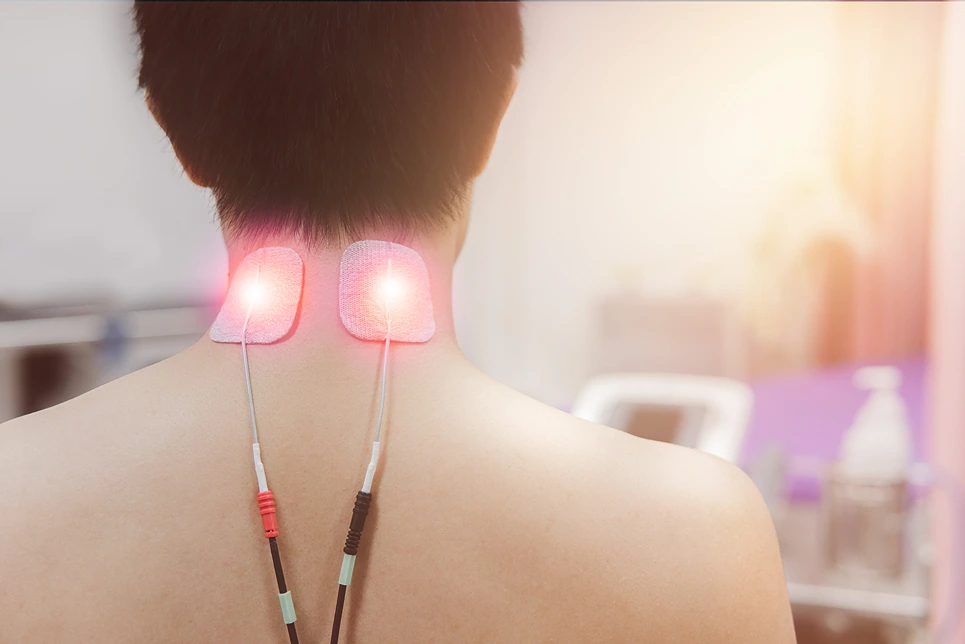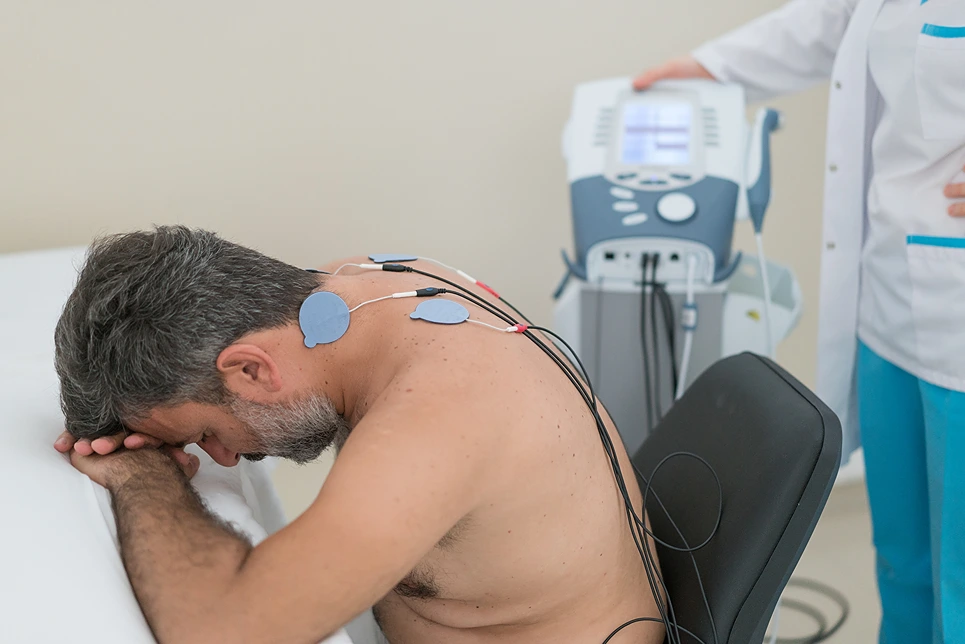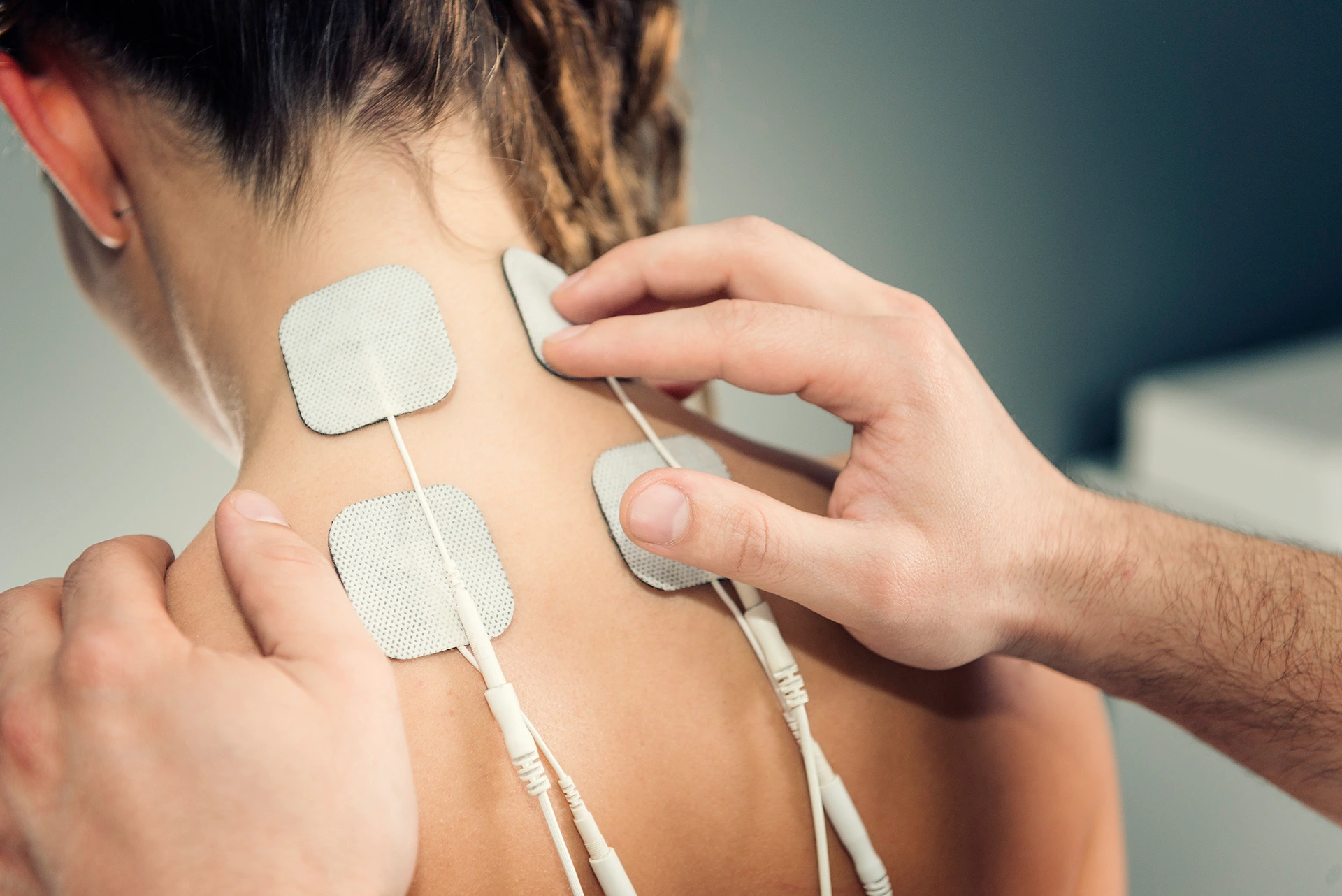Dealing with chronic neck pain? You’re familiar with the sharp pains, constant soreness, and stiffness that can ruin your day.
Sure, medications help momentarily, but for long-term management, you need something more sustainable. Get to know Transcutaneous Electrical Nerve Stimulation or TENS—a growing favorite for tackling ongoing neck pain.
Read on to learn how TENS units can specifically help alleviate neck pain when used properly.
Understanding TENS Units

TENS units function by sending gentle electrical impulses through electrodes attached to the skin.
This stimulation disrupts pain signals before they reach the brain. While the precise workings are still under investigation, it’s thought that TENS taps into the body’s own pain relief mechanisms.
These portable, battery-operated devices offer targeted pain relief without causing drowsiness. Users can tailor their treatment with adjustable settings, ensuring the therapy meets their individual needs.
Now let’s focus on how TENS technology can provide neck pain relief.
Effectiveness for Neck Pain
Research indicates that TENS therapy can offer substantial relief for persistent neck pain. Some specialists believe that TENS is effective for neck pain because the electrical signals can target nerve roots, which are frequently involved in chronic pain. The stimulation triggers the release of endorphins, which in turn block pain signals while also increasing blood flow to relax muscles.
Elevate your neck pain treatment beyond TENS. Kaly can connect you with professionals for comprehensive care.
Choosing the Right TENS Unit
With countless devices available, it’s essential to select the right TENS unit tailored to your needs. Those optimized for neck pain offer:
- Adjustable intensity: Units with 20 or more intensity levels allow you to customize the stimulation strength for comfort.
- Multiple pad placement: Pads that can be positioned on the neck, shoulders, and upper back target pain conduction points.
- Comfortable wear: Compact, lightweight units with quality conductive pads are ideal for the sensitive neck area.
- Smart device connectivity: Some units sync with apps to adjust settings, create pain management plans, track usage, and share results with your provider.
Consulting with a pain specialist can help determine which features are most appropriate. Platforms like Kaly simplify this process by matching patients with knowledgeable providers.
Usage Guidelines

To achieve pain relief, proper TENS unit placement and usage instructions must be followed. Here are some best practices when using these devices to manage neck pain:
- Electrode pad placement: Position pads on the front and back of the neck near the pain source. If needed, additional pads can be placed on shoulders or upper back.
- Treatment duration: Sessions typically last 15-30 minutes. Use up to several times per day during pain flares or as recommended by your provider.
- Frequency settings: Stimulation between 80-100 Hz is ideal for chronic neck pain. Adjust as needed for comfort.
- Intensity level: Start low and slowly increase to the highest comfortable level. The sensation should feel tingling but not painful.
Regular use is key. Create a consistent daily routine and track your progress. Over time, you may notice longer pain-free periods.
Safety and Precautions
TENS units are very safe when used as directed. However, be sure to take these precautions:
- Avoid placing electrodes directly on the neck’s front. Position them off center instead.
- Never use over injured or fractured bones, infected areas, or blood clots.
- Stop use if skin irritation from electrodes occurs. Switch pad placement.
- Don’t use it while sleeping, driving, or operating machinery.
- Keep the device away from water to prevent shock.
Consult your medical provider if you have any concerns about using TENS for your specific health condition. For severe or worsening pain, seek immediate medical attention.
Comparative Analysis with Other Treatments
While treatments like medications, physical therapy, massage, and chiropractic care may also provide neck pain relief, TENS units offer distinct advantages:
- Non-addictive and low risk compared to painkillers
- Less time consuming than therapy exercises
- No muscle stiffness like massages sometimes cause
- Non-invasive and no cracking like chiropractic adjustments
TENS can complement other treatments as part of a comprehensive pain management plan. This multimodal approach often yields the best outcomes.
If TENS therapy isn’t providing relief, it’s time to consult Kaly’s network of experts for an effective neck pain treatment plan.
The Future of TENS for Neck Pain
As technology advances, there are exciting possibilities for TENS devices. Features like linking to smartphone apps, adjusting intensities automatically, and combining TENS with thermal or vibration therapies are on the horizon.
Research continues to better understand how electrical nerve stimulation provides pain relief. With this knowledge, future TENS units could deliver enhanced, tailored pain management.
While more studies are still needed, TENS therapy is poised to transform chronic neck pain treatment. Continued development will ensure these drug-free devices can help even more patients find lasting relief.
Final Thoughts

For those suffering from chronic neck pain, TENS units are a safe, at-home treatment option with proven benefits.
Choosing a device suited for neck pain and following proper protocols can provide much-needed pain relief without medications or side effects.
Along with expert guidance tailored to your needs from platforms like Kaly, TENS technology offers an empowering way to finally overcome nagging neck pain.
FAQs About Tens and Neck Pain
How does TENS provide neck pain relief compared to traditional pain medications?
TENS units offer pain relief by delivering minimal electrical currents to the neck muscles, which can disrupt pain signals. This differs from pain medications, which often provide temporary relief but can have side effects.
Can TENS units also help with shoulder pain associated with chronic neck pain?
Yes, TENS units can be effective for shoulder pain as well, especially when electrode pads are strategically placed around the neck and shoulder blades. This helps manage pain signals from both areas.
What are the safety considerations when using TENS for neck pain?
Safety is crucial. Avoid using TENS if you have heart disease or a pacemaker, and never place electrodes on broken skin. It’s important to consult with a health care team before starting any new treatment program.
How does electrical stimulation from a TENS unit differ from using a heating pad for neck pain?
While a heating pad provides relief through heat, a TENS unit uses electrical pulses to target pain signals directly. TENS can offer more precise pain management for chronic neck and cervical pain.
Are TENS units suitable for all types of neck pain, including acute and chronic conditions?
TENS units are generally more effective for chronic neck pain. For acute pain, it’s essential to first consult with a pain management professional to determine the best method of pain relief and to develop a comprehensive treatment plan.
TENS not cutting it for your neck pain anymore? Turn to Kaly to find the right professional to reevaluate your condition.
